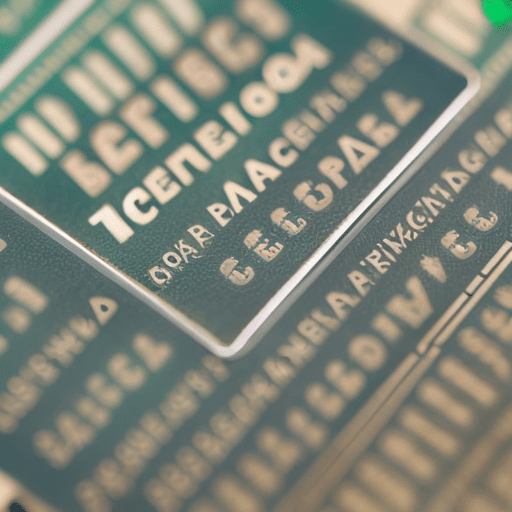As cannabis legislation evolves in Delaware, you may find yourself navigating through the complex waters of new laws that could significantly alter your experience as a medical patient. With the state’s recent legislative changes, you might be wondering how this impacts your access to medication, the restrictions you must adhere to, and what new freedoms you might enjoy.
Table of Contents
Understanding the changes to possession limits, dispensary protocols, and newly introduced consumption options is crucial. Compliance is key; staying informed about these changes will ensure that you remain on the right side of the law.
As you adapt to this shifting landscape, consider how these updates may influence your treatment and quality of life. These laws are designed with your well-being in mind – but do they hit their mark or miss their target? Let’s delve into the details to uncover their true implications for your health.
Overview of Legal Changes

The legislative landscape in Delaware has undergone significant transformation with new cannabis laws directly impacting rights and regulations surrounding medical patients. As someone involved in providing care and support, it’s vital for you to conscientiously navigate through this revised regulatory framework. These changes reflect broader acceptance of therapeutic use of cannabis but come with complex layers of compliance requiring careful attention.
The regulatory framework now clearly outlines conditions under which medical cannabis can be recommended, possessed and used. It’s up to you to understand these legal boundaries effectively so as to guide and assist those in your care. The amendments aim to ensure patient safety, product quality, and controlled distribution, all of which necessitate your informed engagement with the current laws.
Tax implications also form a critical part of this new landscape. The state has structured taxes to fund regulatory measures and potentially support public health initiatives. Understanding these financial aspects allows you to better prepare patients for the cost of their medication and highlights the importance of budgeting within treatment plans.
In essence, your role is pivotal in interpreting and applying these changes. By doing so, you uphold the integrity of care provided and foster a compliant environment for medical cannabis use.
Possession Limit Modifications

Understanding revised possession limits is essential as they dictate how much medical cannabis you can legally carry and store. Delaware’s new cannabis legislation has altered these parameters, potentially affecting your compliance status and consequently your license implications. As a medical patient, it’s crucial that you adhere to these changes to avoid any legal complications arising from possessing amounts outside the legal threshold.
Specifically, the law’s modification affects the quantity of cannabis that you’re authorized to possess. It’s important to note that these adjustments also impact cultivation restrictions. While patients may have previously been allowed to grow certain numbers of plants, new limits may now be in place reflecting either more stringent or relaxed approaches depending on legislative changes.
To maintain your standing as a law-abiding medical cannabis patient, familiarize yourself with updated possession limits. This knowledge not only ensures that you stay within legal boundaries but also helps you manage your medical needs responsibly without inadvertently violating the law. Always consult current regulations or legal counsel for the most accurate and personalized advice.
Updated Dispensary Regulations

As you adjust to revised possession limits for medical cannabis, it’s equally important to be aware of updated dispensary regulations that may affect how and where you can obtain your medication. These changes are designed to ensure responsible distribution of medical cannabis in accordance with state laws, particularly concerning tax implications and zoning challenges.
Dispensaries in Delaware are now subject to stricter zoning regulations dictating their locations. This is done to prevent over-concentration in any one area and ensure they’re not placed near schools or other sensitive areas. As a result, some dispensaries may relocate to comply with these new guidelines.
Additionally, tax implications of these new regulations cannot be overlooked. Dispensaries must navigate complex tax landscapes including state and local taxes which can affect the price of your medical cannabis. It’s crucial for these businesses to comply with tax laws to avoid penalties ensuring they can continue serving you without interruption.
Understanding these updated dispensary regulations will help you access your medication with minimal disruption while ensuring compliance with state laws.
New Consumption Options

Reflecting the evolving landscape of medical cannabis, Delaware has introduced new consumption options for patients, broadening the ways they can administer their treatment. This development is significant as it acknowledges diverse preferences and medical needs of patients. The introduction of vaping products and edible varieties offers alternatives to traditional methods such as smoking or topical applications which might not suit everyone.
Vaping products have become popular among patients due to their discretion and ability to control dosage precisely. They offer a fast-acting option with the added benefit of reducing respiratory risks associated with smoking. As a caregiver or medical professional, understanding specific devices and substances available will help guide patients in making informed choices.
Edible varieties of medical cannabis represent another significant advancement. These options provide longer-lasting effects which can be particularly beneficial for patients requiring sustained relief. It’s essential to educate patients on delayed onset of effects with edibles and importance of dosage control to prevent overconsumption.
As you support patients navigating these new options, emphasize the importance of responsible use and adherence to prescribed treatment regimens. The ultimate goal is enhancing patient well-being through safe, effective, personalized use of medical cannabis.
Compliance Tips for Patients

While exploring new consumption options is positive for medical cannabis patients in Delaware, it’s equally important to adhere to legal and medical guidelines ensuring safe and effective use. You must maintain valid patient registration to legally access and use medical cannabis. This registration serves as protection from legal repercussions ensuring your consumption is recognized as legitimate medical necessity.
Renew your registration promptly to avoid lapses that could expose you to legal risks. If you encounter unique situations where standard regulations might not apply, educate yourself about relevant legal exceptions. These often address issues like traveling with medication or accessing your supply during temporary stays in healthcare facilities.
Furthermore, understanding the scope of your patient rights and constraints of the law is your responsibility. Engage with healthcare professionals and legal experts to stay informed. By doing so, you contribute to responsible community of medical cannabis users fostering an environment where therapeutic benefits are maximized while respecting legal boundaries.
Conclusion
As Delaware’s cannabis landscape evolves, navigate these changes like an experienced captain steering through shifting seas. Keep close eye on possession limits and embrace new dispensary protocols. Explore fresh consumption avenues while adhering tightly to regulations. Stay informed, compliant, proactive – it’s the surest way to ensure your medical needs are met without compromise.
This is the new normal—embrace it with confidence and caution.
We invite you to learn more about these updates and how they could affect you at Cannabis Docs of Delaware. We’re always here to help navigate these changes; our friendly team is just a phone call away ready answer questions providing guidance needed in this evolving landscape.
Don’t hesitate – reach out today!

